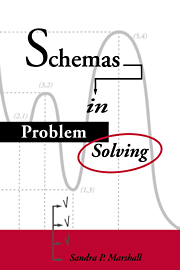III - Learning from instruction
Published online by Cambridge University Press: 22 October 2009
Summary
Part III describes the ways in which students learn. In particular, the chapters in this part focus on learning that occurs under the instructional conditions presented in part II.
Part III begins with an overview of some of the important issues in learning, especially with respect to schema theory. Three areas of study are most relevant: the type of information that individuals acquire from learning, the way in which the information is retained, and the strength and reliability with which it is used again. Chapter 6 focuses on recent developments in these three areas.
The remaining chapters of part III describe experimental outcomes from studies of learning. They contain descriptions of different experiments, each designed to look at learning from a different perspective.
In chapter 7, I describe two experiments that examine the learning that occurs in the initial stages of schema development, especially students' ability to recognize the situations and their different elements. The focus here is on students' acquisition of identification and elaboration knowledge.
In chapter 8, the nature of students' planning is examined. The research reported here centers on problem solving as it is manifested in the extended problem-solving environment of PSE.
And, finally, in chapter 9, I describe two experiments that focus on the importance of visual representations, contrasting learning with diagrams and learning without them. Both studies have interesting results about long-term retention of visual information.
- Type
- Chapter
- Information
- Schemas in Problem Solving , pp. 169 - 170Publisher: Cambridge University PressPrint publication year: 1995



